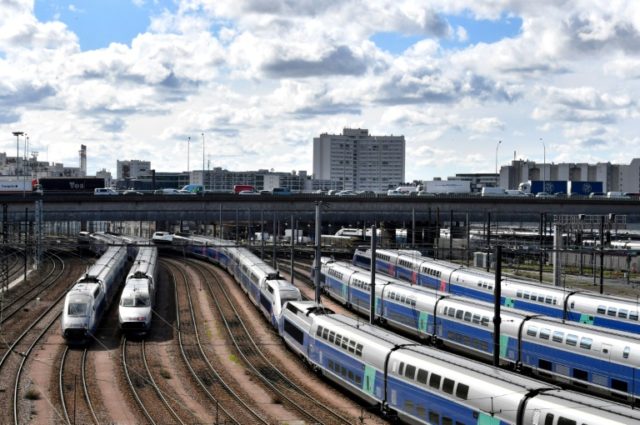Paris (AFP) – The French government said Friday that it planned to take on 35 billion euros in debt from the state railway SNCF, improving the chances of an end to nearly two months of strikes.
Absorbing the debt has been a key demand from unions, and the government’s decision to spell out its commitment was received positively by some trade unionists.
“This will become part of state debt and it will be paid back in the same conditions and at the same time as the state’s public debt,” Prime Minister Edouard Philippe told reporters.
A total of 25 billion euros would be absorbed in January 2020 and another 10 billion in 2022, Philippe said, slashing the state-owned group’s borrowings which currently stand at 46 billion euros (53 billion dollars).
“The issue is moving forward,” said Luc Berille, head of the UNSA union, the second-biggest on the network. “There is now dialogue.”
All trade unions representing staff on the SNCF have backed the longest-ever rail strike sequence, which began in early April and has seen workers walk out on two days out of every five.
The conflict between centrist President Emmanuel Macron and the rail unions, a historic bastion of the labour movement, is seen as a key test of the president’s resolve and ability to push through other tricky reforms, such as his plans for retirement financing.
But the CGT, which has spearheaded resistance nationally and organised numerous protests against Macron, said it planned to keep up the stoppages which are scheduled to last until the end of June.
Other unions including SUD-Rail and FO also said they would continue striking, bolstered by a vote of SNCF employees earlier this week that showed 95 percent of 90,000 respondents rejecting the government’s proposed reforms.
But the walkouts have been progressively weakening since they began, with strike participation falling among staff.
Many analysts see the government as holding the upper hand.
Public opinion remains supportive of Macron as the rail reform legislation winds its way through parliament, with a vote in the upper house scheduled for June 5.
– Money for reform –
Philippe held meetings with the main rail unions on Friday to seek an end to the conflict, which has cost the SNCF more than 250 million euros in lost revenue, according to the company.
The state’s decision to take on some part of the SNCF’s debt, built up over decades of investment in high-speed lines and other expenses, was always expected, and has always been conditional on reforms being accepted..
Macron has pledged extensive changes aimed at making French railways more competitive ahead of the opening of the European market to passenger rail competition starting in 2020.
Most controversially, he wants to end the job-for-life protections and the special status enjoyed by railway workers — but only for new recruits.
The unions this week indicated they would accept the phasing out of the special status in exchange for guarantees that the government will ensure a “strong” new collective labour agreement for rail workers.
The unions also oppose the transformation of the SNCF into a joint-stock company whose shares would be held by the state, which they see as a first step towards privatisation.
The government has repeatedly denied this.

COMMENTS
Please let us know if you're having issues with commenting.